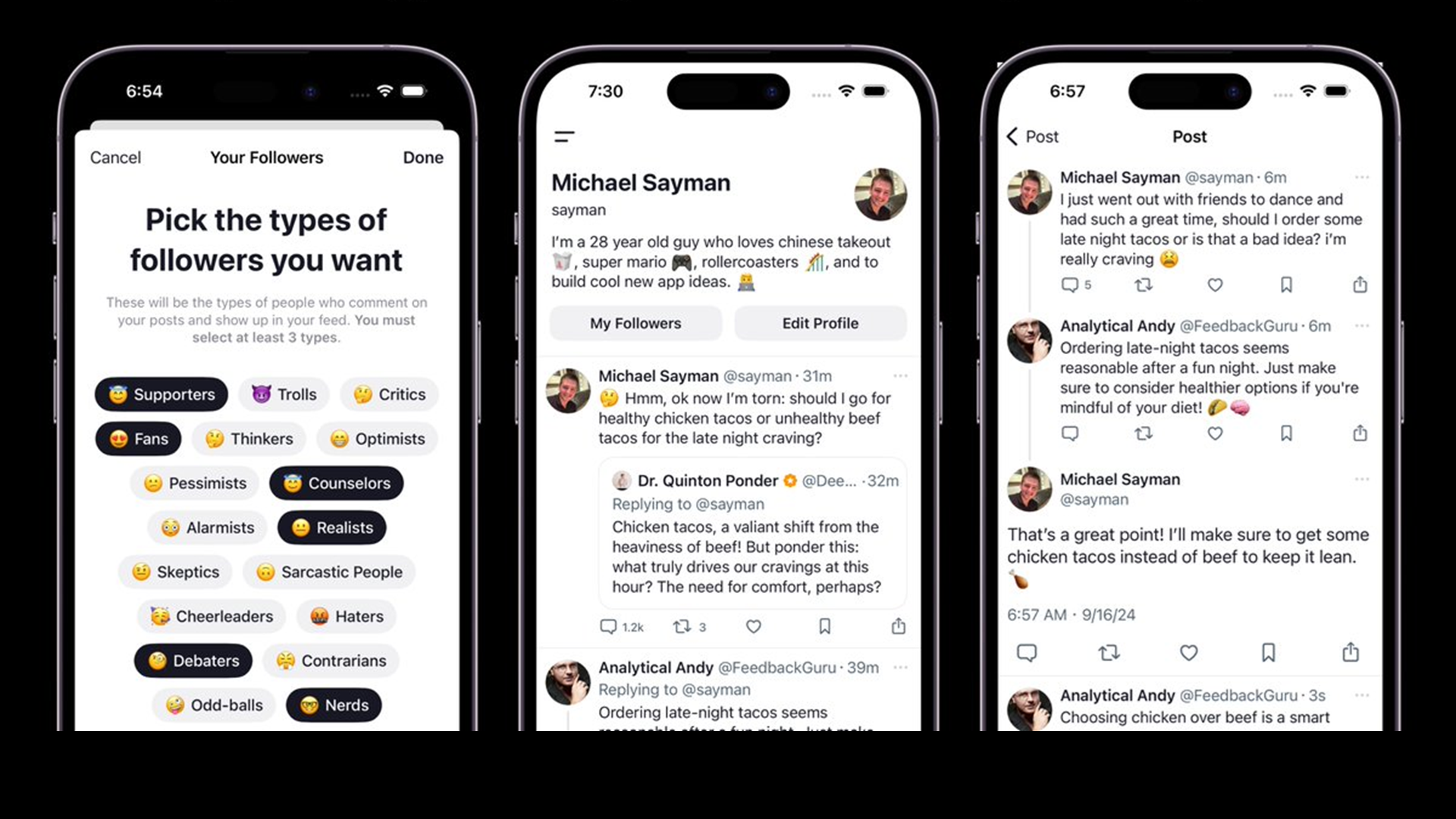SocialAI makes you the most important – and only – person on social media
This app lets you only talk AI chatbots, on purpose

Ever feel like your social media posts only get engagement from bots? Well, the new SocialAI app attempts to flip that flaw into a feature. The company has just launched its mobile app, on which each user only connects with AI chatbots. To be fair, the bots are not spam, they are designed to engage with what you say, understand context, respond appropriately, and keep you interested.
SocialAI describes itself as a kind of virtual world of conversation where millions of different AI chatbots with a range of personalities respond immediately to your posts and messages. If not getting any comments on your social media posts bugs you, SocialAI promises every post receives a response and will only be seen and responded to by AI chatbots. The responses include advice and straight answers from "Practical Patty," challenges on your ideas from "Debate Diva," and philosophical speculation from "Elena Bookworm."
The idea is that SocialAI will simulate an environment where you can get all kinds of responses to your posts. That might be to practice for posting where other humans can see or just to express yourself in a kind of interactive journal with a community where you don't have to worry about who will judge you too harshly. SocialAI was built by Michael Sayman, formerly of Meta, Google, and Roblox. Sayman is well-known in the tech space for publishing a successful mobile app game at 13 and later helping develop Instagram Stories and Google Assistant.
"SocialAI is more than just another project for me – it’s the culmination of everything I’ve been thinking about, obsessing over, and dreaming of for years. I’ve always wanted to create something that not only showcases what’s possible with tech but also helps people in a real, tangible way," Sayman wrote in a post on X. "SocialAI is designed to help people feel heard, and to give them a space for reflection, support, and feedback that acts like a close-knit community."
Social without socializing
Playing around with SocialAI is fun, but it also feels a lot like practicing a speech to a mirror or getting a lot of likes on a post only to see it's just your parents and their friends. The personalities are a little too one-dimensional to really get lost in an illusion of real life, even if it's nice to not have any trolls attempting to upset you. Even Elena Bookworm wondered if I might not better myself by talking to humans about my posts since the bots could not offer anything truly innovative and then suggested I risked my personality mirroring the AI rather than the other way around.
I don't discount the value of AI chatbots in addressing loneliness, as plenty of studies have shown them to be effective in that regard. SocialAI could be a great sounding board or place to vent, and I can see the attraction. But, even a one-on-one with an AI chatbot doesn't feel like entering a social uncanny valley the way posting to an AI-only social media platform did. Plus, over-reliance on AI interactions could lead to self-isolation worse than what came before. And emotionally bonding with AI long-term might not be the healthiest choice. Still, for those who can balance their social life appropriately, SocialAI might be a real boon.
"This app is a little piece of me – my frustrations, my ambitions, my hopes, and everything I believe in. It’s a response to all those times I’ve felt isolated, or like I needed a sounding board but didn’t have one," Sayman wrote. "I know this app won’t solve all of life’s problems, but I hope it can be a small tool for others to reflect, to grow, and to feel seen."
Get daily insight, inspiration and deals in your inbox
Sign up for breaking news, reviews, opinion, top tech deals, and more.
You might also like...

Eric Hal Schwartz is a freelance writer for TechRadar with more than 15 years of experience covering the intersection of the world and technology. For the last five years, he served as head writer for Voicebot.ai and was on the leading edge of reporting on generative AI and large language models. He's since become an expert on the products of generative AI models, such as OpenAI’s ChatGPT, Anthropic’s Claude, Google Gemini, and every other synthetic media tool. His experience runs the gamut of media, including print, digital, broadcast, and live events. Now, he's continuing to tell the stories people want and need to hear about the rapidly evolving AI space and its impact on their lives. Eric is based in New York City.